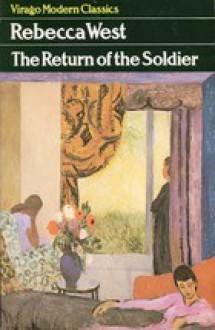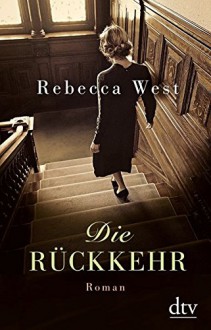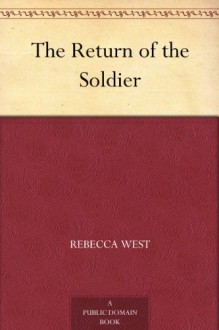
Kitty and Jenny sit at home, awaiting the end of the war and the return of Chris, Kitty’s husband and Jenny’s cousin. However he returns to them sooner, suffering amnesia from shell-shock. He can remember Jenny and Margaret, his first love, but has no recollection of Kitty. Between the women they have to decide if they should allow Chris to remain 15 years in the past or to find a cure. That cure will be an act of love.
It is little wonder that Chris resorts to only remembering his past. It is a coping mechanism, his brain’s way of allowing him to heal, by remembering the happiest time of his life. It is telling perhaps that his mind does not remember the early courtship with his wife, though she is inextricably linked to the loss of his son.
The house and it’s grounds are idealised. It is the house of old that Chris longs to return to, a place for him to be comfortable and to heal. Jenny marvels at its beauty in the present day, at the wonderful grounds and the many changes wrought by Kitty. With Chris’ situation her eyes are opened to the fact that these changes may not be as welcome to him as once believed.
The house and it’s setting are also used to juxtapose the battlefields. Rebecca West doesn’t attempt to portray the horror of war. It is mentioned briefly by Jenny, referring to the film reels seen and the dreams they cause. However the reader is left to imagine the scenes, stark in their absence, when compared with the idyllic life Chris has left behind. To Jenny it is a haven, a cocoon to keep them safe. The house is in a perpetual golden glow if her descriptions are to believed but it becomes more apparent that it may be something of a gilded cage.
Kitty isn’t a particularly likeable character. She seemed less concerned with Chris’ mental health than how it affected her. She thinks that by draping herself in the jewels he bought her, he will suddenly remember her. Her avoidance of him seems more caused by petulance than anxiety. She is discourteous to Margaret, though this seems less to do with jealousy and more to do with snobbery. Jenny is a more complex character. She views Margaret initially with disdain, a disdain towards her poverty and obvious signs of beauty than anything else. She is quick to assume that Margaret is unhappy with her life in her pokey little house, that her lack of style and money has leached her of beauty. She misses the signs of fidelity that are briefly brought before her when Margaret and her husband interact. She fails, initially, to see the beauty behind the shabby clothes. But she gets to know Margaret, learns the history of her and Chris and soon comes to rely on her. Margaret is ultimately selfless. She does attend on Chris in part to remember happier days, to relive her youth and in some respects to obtain closure or to confirm her life choices. She is also there for Chris, to help him heal. Chris is the tie that binds them together and though he is the focal point for the women, it is those women that are very much the focal point of the novel.
This is a slim volume, but nonetheless is an effecting story, despite it’s size. It is a quiet, beautifully told story of love and war. Recommended.

 Log in with Facebook
Log in with Facebook 








